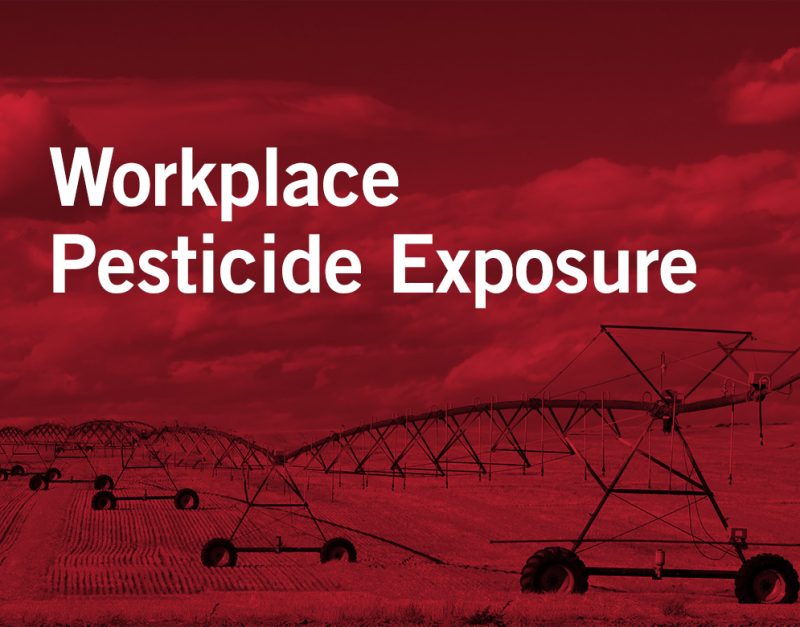 February 15, 2018
February 15, 2018 Study shows direct connection between pesticide exposure and poor outcomes including difficult pregnancy and birth defects.
According to a recent study, women who ate more fruits and vegetables containing high amounts of pesticide residue were less likely to get pregnant or have a live birth following infertility treatments. In comparison with women who ate less than one serving per day of high pesticide residue fruits and vegetables, women who ate two to six daily servings had an 18% lower probability of clinical pregnancy and a 26% lower probability of live birth.
Fruits and vegetables provide vitamins, minerals, antioxidants, and other necessary nutrients to the general population, but they also serve as the primary way that pesticides enter the human body, according to an article published in a January 2018 issue of JAMA Internal Medicine. Studies have in fact shown that some agricultural pesticides have harmful effects on the body including decreased fertility, spontaneous abortion, stillbirth, and developmental abnormalities.
In an editorial, Philip Landrigan, MD, of the Icahn School of Medicine at Mount Sinai in New York City, said, “The observations made in this study send a warning that our current laissez-faire attitude toward the regulation of pesticides is failing us. We can no longer afford to assume that new pesticides are harmless until they are definitively proven to cause injury to human health.” Dr. Landrigan goes on to emphasize the importance of truly understanding the pesticide industry and how it works and strengthening requirements for both pre- and post-market testing of how these pesticides affect the human body.
It is important to note that pesticides do not only enter the body through direct consumption. Pesticides can be absorbed through the skin or inhaled. While sprayed pesticides land on specified crops, there are many situations where they drift from their designated target. This phenomenon is known as pesticide drift.
Pesticide Exposure and Farmworkers
Pesticides are particularly dangerous for those who work on commercial farms where they are frequently used in large amounts. If farmworkers, such as pickers or harvesters, enter the fields after being sprayed but before the pesticides have settled and dried, the farmworkers run the risk of coming into direct contact with pesticide spray. Pesticide residue remaining on fruits and vegetables can also rub off on the harvesters’ clothing leading to contamination of their vehicles and homes. When pesticides come in contact with bare skin, they can be absorbed. When pesticides are airborne, they can be easily inhaled, further exposing the workers.
Parents working in these areas are at a high risk of toxic exposure which can lead to birth defects and complications such as:
- Brain cancers
- Endocrine disruption
- Neurological disorders
- Lowe birth weight and size
- Premature death
Farmworkers, in particular, depend on farm owners and labor contractors to provide a safe environment in which to work.
How Can Waters Kraus Paul & Siegel Help?
Waters Kraus Paul & Siegel is a law firm with a wealth of information and experience representing clients who have children born with birth defects related to toxic exposure while working on a farm. The firm’s birth defect attorneys work tirelessly to understand clients’ situations in an effort to aggressively and effectively represent them through the entire legal process. If your child was born with birth defects caused by exposure to toxic chemicals in the workplace, email or call 800.226.9880 to see how the birth defect attorneys at Waters Kraus Paul & Siegel can help you with your birth defect lawsuit.


